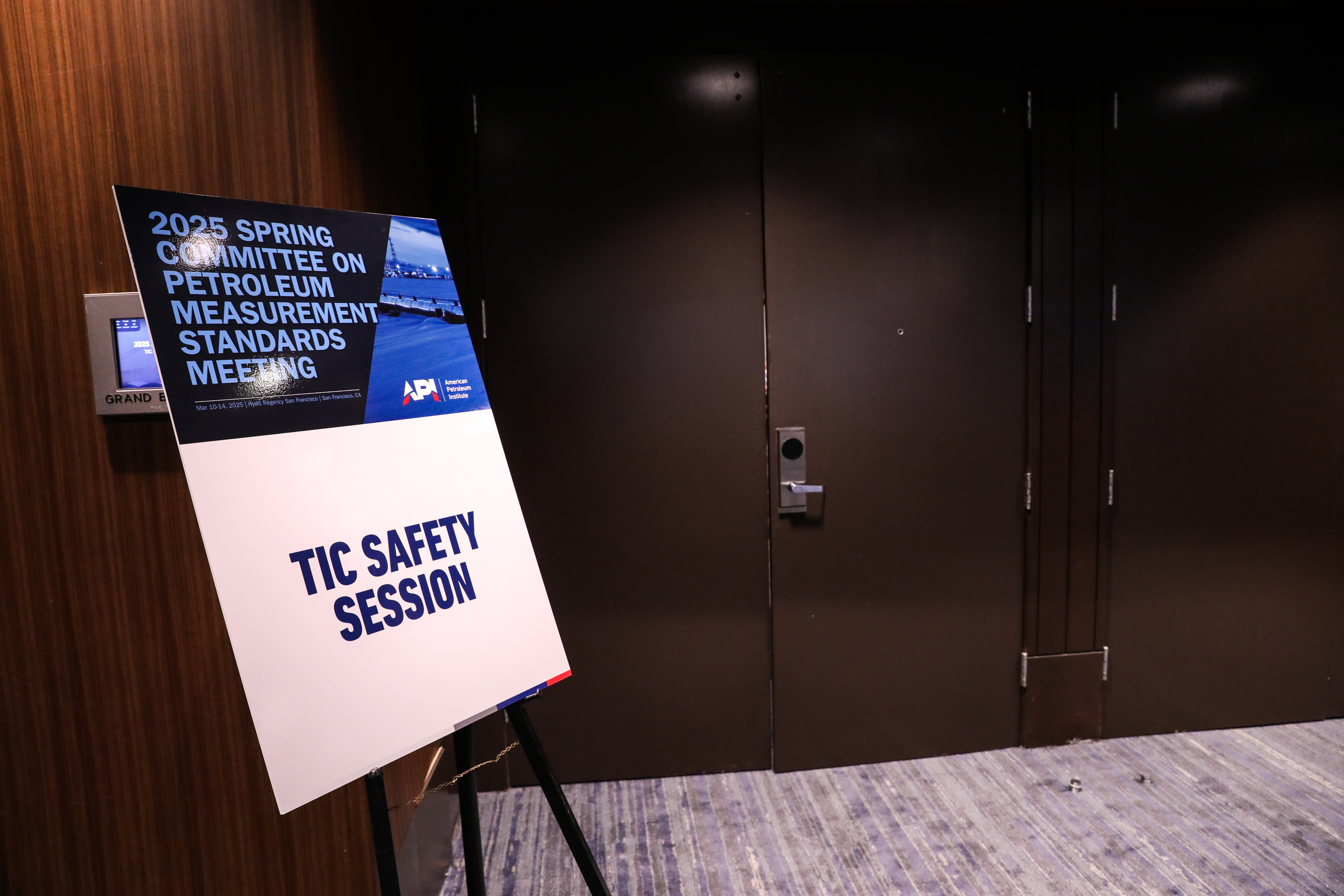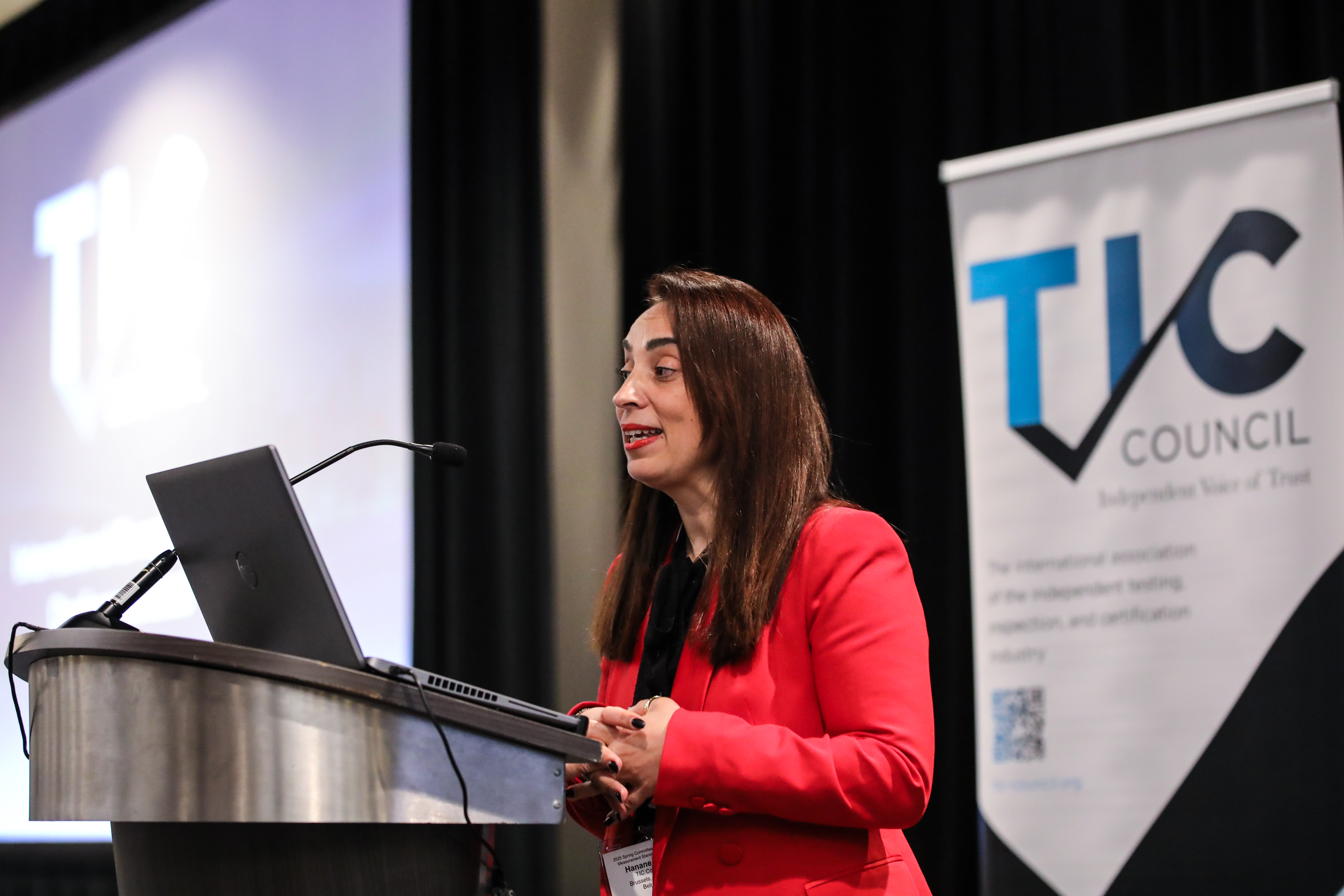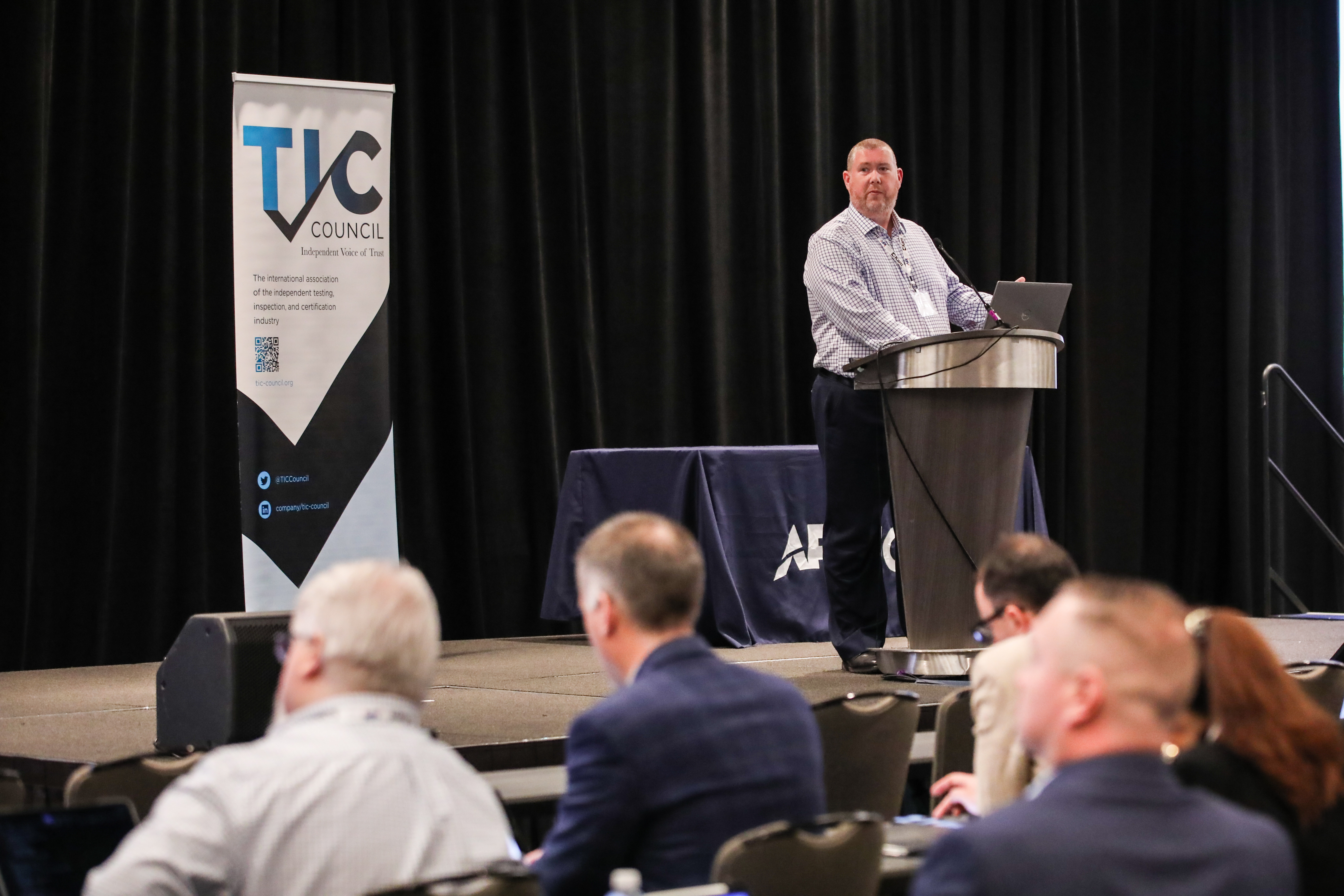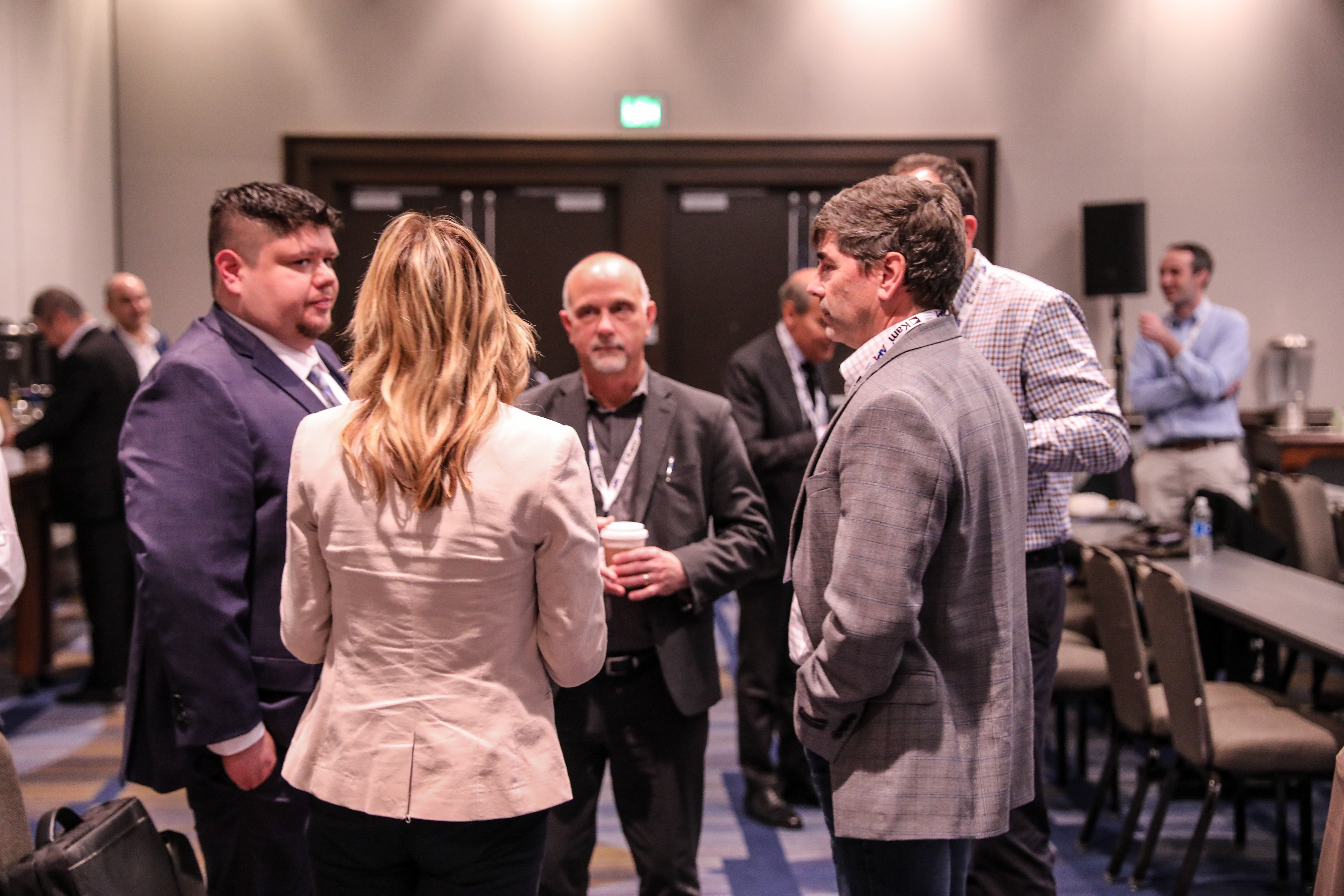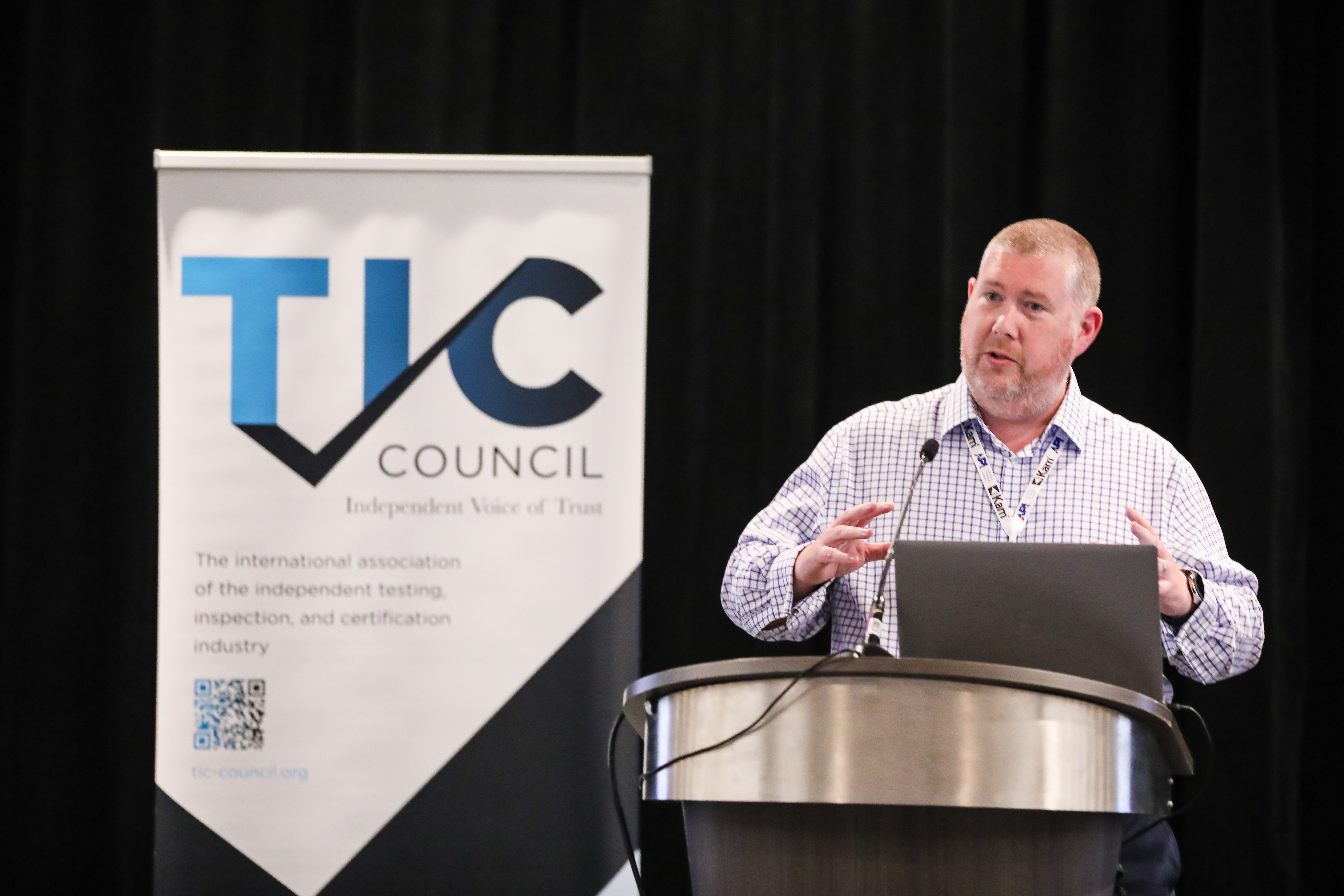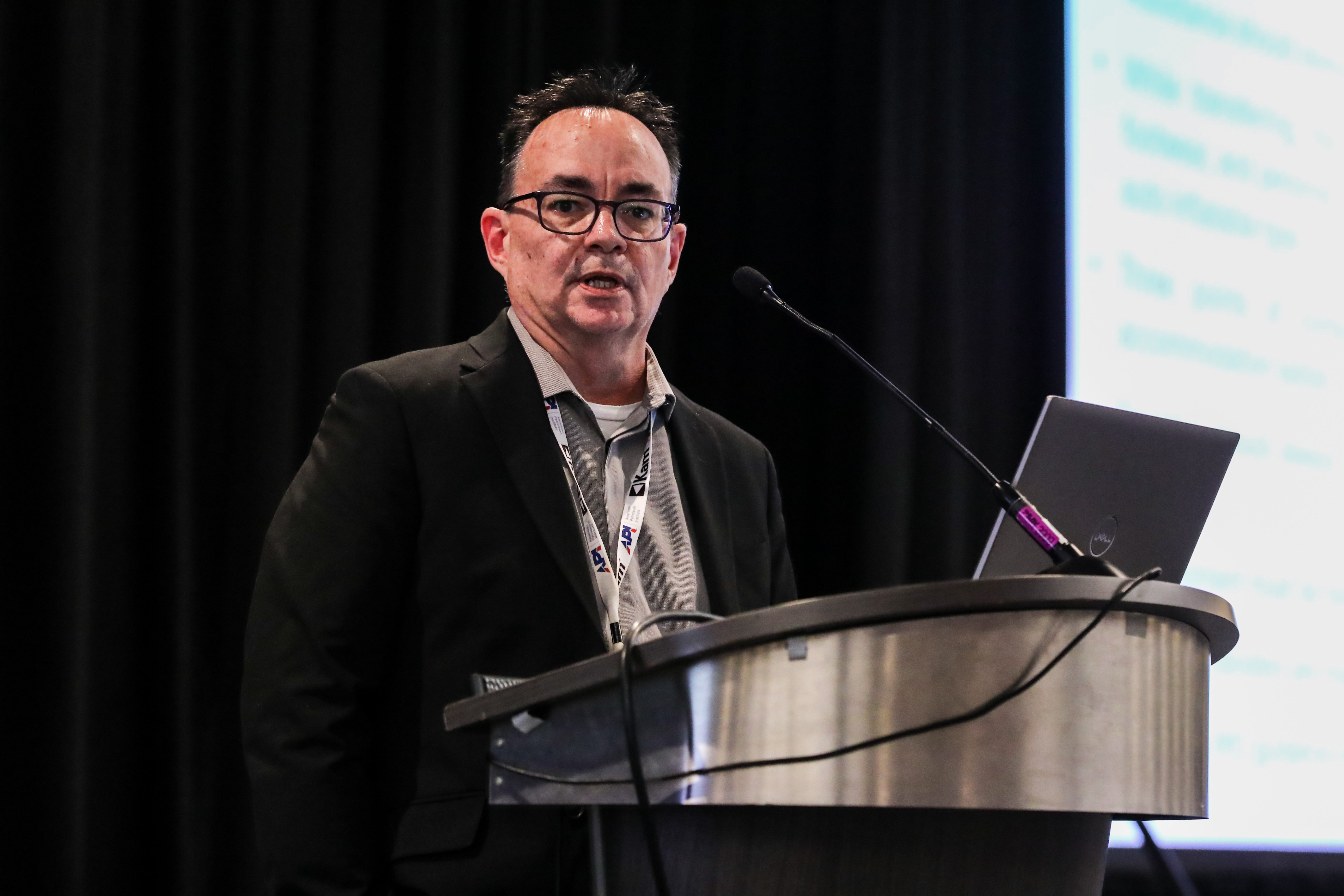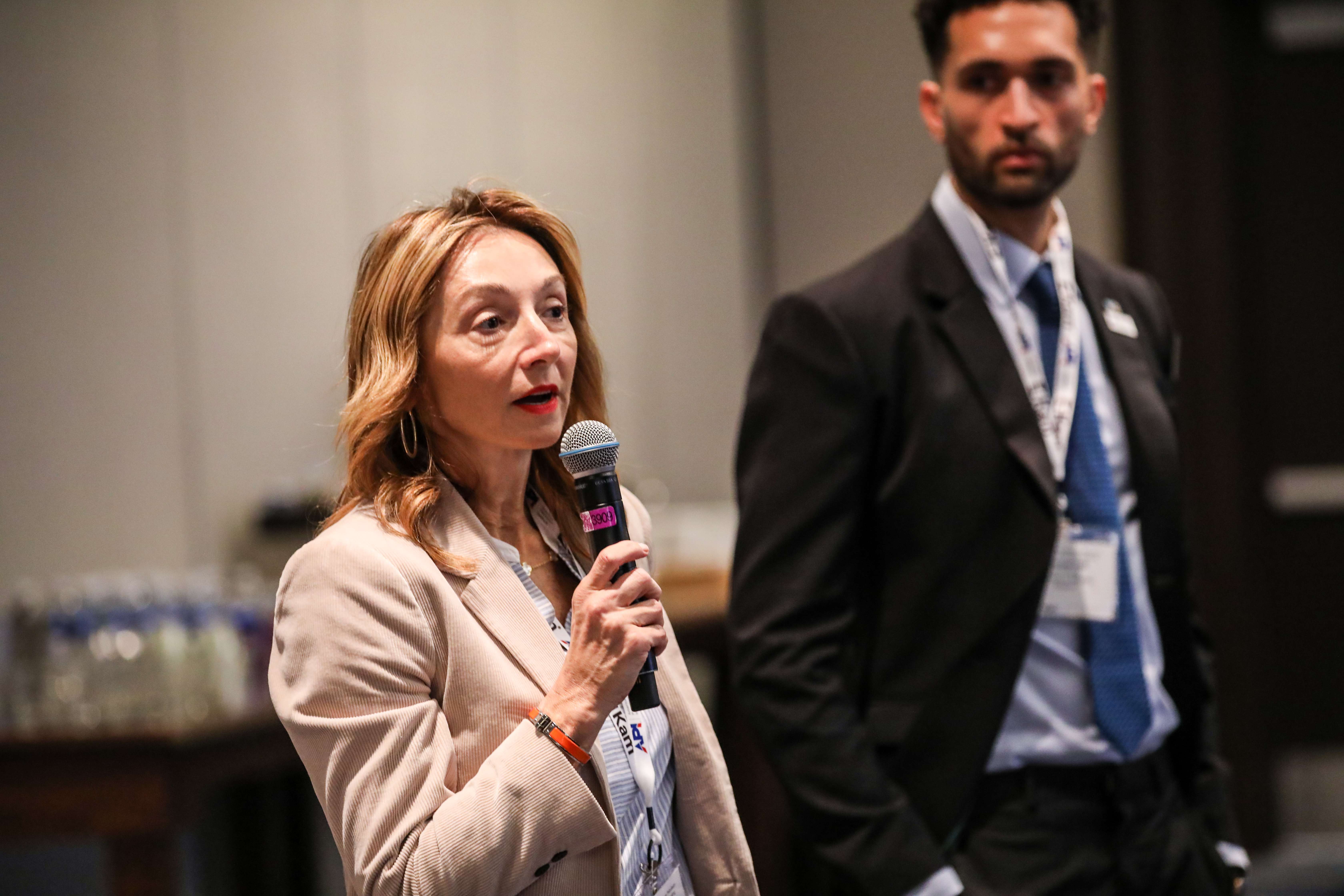The fifth instalment of the TIC Council Safety Conference was held at the Hyatt Regency Hotel in San Francisco, on March 12th and 13th 2025. The conference was organised by TIC Council in partnership with BP, Chevron, ExxonMobil, and Shell, and in cooperation with the American Petroleum Institute.
The opening address was given by Hanane Taidi, Director General of TIC Council, and Peter Boks, CEO of Saybolt International and Global Board Sponsor of TIC Council’s Commodities Committee.
Ms. Taidi welcomed participants and introduced TIC Council, highlighting its role in promoting industry-wide health and safety. She underscored TIC Council's commitment to developing and advocating for technical and safety best practices as a key strategic goal, positioning the Safety Conference as a flagship initiative.
Peter Boks then outlined the background and objectives of TIC Council's Safety Conference. He stressed that these conferences aim to promote safety and ethical practices across the energy industry. They serve as a collaborative platform, bringing together inspection companies and major oil producers to foster open, productive discussions on critical safety issues.
The conference's first session featured a panel of speakers offering a comprehensive overview of vessel access within the Energy sector from various stakeholder perspectives. The session aimed to highlight diverse vessel access methods, their associated safety protocols, and the critical safety concerns that have resulted in fatalities.
Mark Harrison, Global Inspection Lead at Intertek Caleb Brett, and Keith Kirvan, HSE Global Director at Camin Cargo, presented the inspection perspective. Chester Urban, HSE Advisor at Shell, followed with the customer's viewpoint. Finally, Michael Breslin of American Waterways provided a local perspective, representing American tugboats, towboats, and inland barges.
Audience discussions focused on the complexities of ensuring vessel access due to the system's intricacy and the numerous stakeholders involved. Participants explored the "disconnect" between industry leadership's commitment to safety best practices and the hazardous situations faced by field personnel. Conversations emphasized the need for practical strategies to address these issues, including internal and horizontal information sharing to enhance understanding, and the development of collective communication strategies to reach problematic areas.
Joshua Morales, Operations Manager Houston at Saybolt, led the second session, which focused on the essential work condition standards inspectors should expect when staying aboard third-party vessels, particularly for extended periods.
The presentation examined the legal frameworks defining these expectations, shared real-world examples from industry inspectors, and outlined the responsibilities of vessel owners and operators in providing safe, comfortable, and compliant conditions for third-party personnel.
Chris Frederic, Shell's Global Investigate & Learn Manager, led the final session of the first day. He presented IOGP's and Shell's model for enhancing safety performance, emphasizing five key human performance principles:
- Error is normal.
- Blame fixes nothing.
- Context drives behavior.
- Learning is vital.
- How you respond matters.
Mr. Frederic explained and demonstrated each principle using real-life examples and interactive audience exercises. The concluding Q&A session further explored attendees' experiences related to these human performance principles, and how they applied to divergent experiences in different sectors of the Energy Industry.
Following a brief introductory remark, the second day of the 2025 Safety Conference began with a session on Harmonizing Start-Work Checklists. Chad Gasper, OE/HSE Manager at Chevron, and James Armstrong, sr. Vice President of Global Health, Safety & Training / ESG at AmSpec, presented the challenges arising from the diverse and often divergent approaches to this practice among Energy stakeholders. They emphasized the benefits of standardization, which would promote consistency and compliance, efficiency and accuracy, risk mitigation, improved data and reporting, and increased client and stakeholder confidence.
The speakers acknowledged the significant shift this proposal would represent for the Energy Industry. They stated that the session's primary objective was to gather feedback and ideas from a wide range of stakeholders during the proposal's development. The subsequent Q&A session was lively, with participants raising challenges and considerations regarding how to implement harmonization across a highly heterogeneous industry.
The following session, focusing on the safe handling and safety considerations of emerging fuels, was divided into three parts. The first part, dedicated specifically to hydrogen, was presented by Michael Bailey, Vice President, Laboratories - Western Hemisphere at AmSpec; Andrew Adkins, Senior Environmental Scientist at CDFA Division of Measurement Standards; and Mark Taylor, President at Airborne Labs International.
These speakers provided an in-depth analysis of the hydrogen value chain, emphasizing hazards and challenges related to transportation, production, and quality and quantity measurements. They also explored current challenges and solutions regarding hydrogen sampling and sampling equipment, with a specific focus on safety mechanisms and procedures, and of associated risks pertaining to embrittlement and equipment damage and degradation.
David Gauci, Global Lead Product Quality and Testing at Saybolt, presented the next segment, which focused on hazards within the CCS value chain.
The session examined the hazards associated with this value chain, but with a specific emphasis on CO2 transportation, and with highlights on risks arising from liquid-gas expansion, potential pipeline brittle fractures, and the dangers of rapid depressurization and CO2 exposure. Further stressed was the importance of material selection, pipeline design, safety regulations, and quality control in mitigating these hazard.
This presentation, delivered by Keith Kirvan, HSE Global Director at Camin Cargo, focused on personal protective equipment (PPE) and safety procedures for handling various new and upcoming fuels, including hydrogen, renewable oils, ammonia, LPG, LNG, and methanol.
The session emphasized the importance of appropriate gloves, eye protection, respiratory protection, and protective clothing to minimize risks such as chemical exposure, flammability, cryogenic hazards, and inhalation of vapours. Mr. Kirvan also shared insights on the use of closed-loop systems for sampling as a method to maintain sample integrity and prevent exposure to hazardous materials.
The closing remarks of the conference were delivered by Peter Boks, who summarized the key points discussed throughout the day. He expressed appreciation for the extensive feedback and discussions that occurred during all the sessions and emphasized the importance of recognizing that safety in the Energy Industry fundamentally concerns safeguarding people, requiring the commitment from all stakeholders involved.
Recognition was given not only to the panellists, but to all the different individuals from across the TIC Council Membership that actively contributed to the development of the content for the event.
The conference saw stronger attendance than in previous events, with 80 representatives from TIC Council members and external companies. External attendees accounted for over 50% of total registrations, and primarily comprised representatives from O&G Companies, Equipment and Service Providers, Traders, and Terminals.
